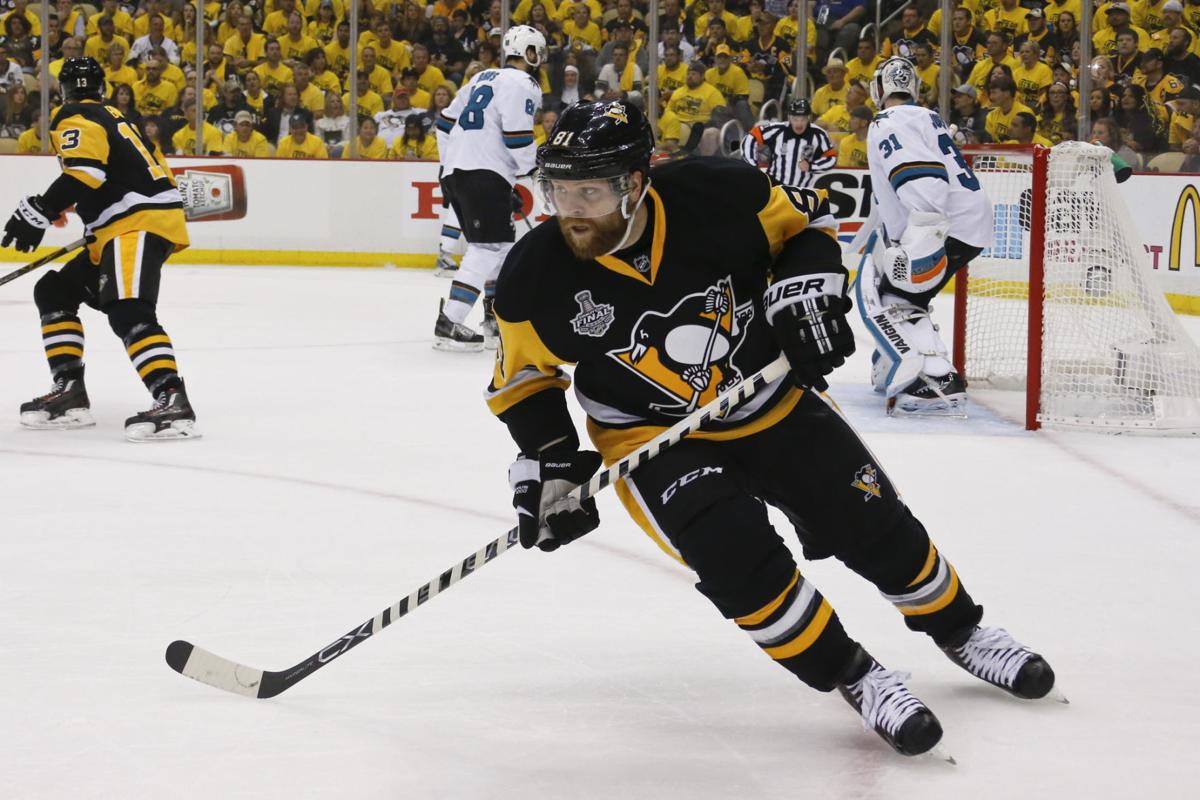The Globe and Mail
June 7, 2016

(Associated Press)
The Toronto Maple Leafs sold low on Phil Kessel.
What was a debate when he was dealt to Pittsburgh last July is now indisputable, after he has helped the Penguins to within one win of the Stanley Cup. More than that, he has been one of their best, most consistent players.
After adding two assists in Game 4’s win – which gave Pittsburgh a 3-1 series lead and the chance of a home coronation on Thursday – Kessel has emerged as the front-runner for the Conn Smythe Trophy as playoff MVP.
There’s also a good argument to be made for Penguins captain Sidney Crosby. He has never won it, and he has served as the two-way backbone of this team, logging far more minutes – and more difficult minutes – than any other forward on his team. Defenceman Kris Letang and goaltender Matt Murray deserve honourable mentions, too.
But Kessel is the best story of the bunch – a redemption story – and often the story carries the day. Except this is a case where many had the tale wrong.
Kessel was demonized in Toronto, especially when it all came apart last season. He was deemed unwilling to fit into a team concept and to play a brand of hockey that could win big games. He was seen as an out-of-shape goal suck capable of only one thing: flinging the puck into the net every few games.
It wasn’t a fair characterization, then or now.
To call what Kessel’s done in Pittsburgh a total transformation is a bit extreme, as he had several big years in Toronto. His first five as a Leaf only four players in the NHL scored more than he did.
What he’s shown with the Penguins, however, is that he was capable of being a lot of the things folks in Toronto said he wasn’t.
“I give Phil a lot of credit,” Penguins coach Mike Sullivan said on Tuesday. “I think his game has evolved into a complete two-way game. We’ve asked him to improve in certain areas of his game away from the puck – in the battle areas – and he’s embraced our message. He’s been very receptive.”
“I think he’s really gained a whole lot of admiration from his coaching staff and his teammates with how his game has evolved here in the second half of the season.”
Sullivan isn’t being hyperbolic here. Kessel has played well defensively. He won’t be winning a Selke, but he was the Penguins top possession player in Game 4 and has become Sullivan’s second-most-used forward, next to Crosby.
Kessel’s line, with Nick Bonino and Carl Hagelin, has the respect of opponents, who consistently match them with their second lines. They’ve outscored opposing lines 15-7 at even strength over 22 playoff games, the best differential on the team.
A lot of things went wrong for Kessel in Toronto, but two of the biggest issues were fixed in his new home. With the Penguins, he is not expected to face other team’s top line every shift while playing with middling linemates. And he isn’t in a system that struggles mightily to maintain time in the offensive zone.
The Leafs style of play – and lack of personnel – always worked against Kessel. That’s why he may have thrived under new Leafs coach Mike Babcock. He could have shifted into this type of role and “evolved” in Toronto, at least until he was dealt. One wonders what a productive Kessel – with 33 points in his past 31 games – might have fetched at the trade deadline?
More, surely, than they got.
But the Leafs pushed hard to make the trade last summer because they wanted a culture change. President Brendan Shanahan didn’t see the buy-in he wanted from Kessel during the team’s brutal freefall, and didn’t want a cloud hanging over the Leafs first ground-up rebuild season in decades.
Where he likely misread the situation was believing Kessel’s miserable year last year revealed something incurable about his competitiveness or character. In a better environment in Pittsburgh, he has thrived – on the biggest stage possible.
That’s set up this fascinating Kessel-or-Crosby debate for MVP, at least if the Penguins close out the series in the next two games. The miscast malcontent who has flipped the narrative to become more of a two-way, team-first player than many believed he could? Or the captain with the already-loaded trophy case, a generational talent who no one would argue with as the choice?
For Kessel to win, it would require some in the media – who cast votes near the end of the deciding game – to change their minds about who he is and what went wrong in Toronto. They’ll also have to believe a second-liner’s contributions can sometimes mean more than a captain’s on the first line.
It’s not an easy call. But the fact Kessel has forced it to be this close proves a lot of people were wrong about him in Toronto.
Follow on Twitter: @mirtle


No comments:
Post a Comment